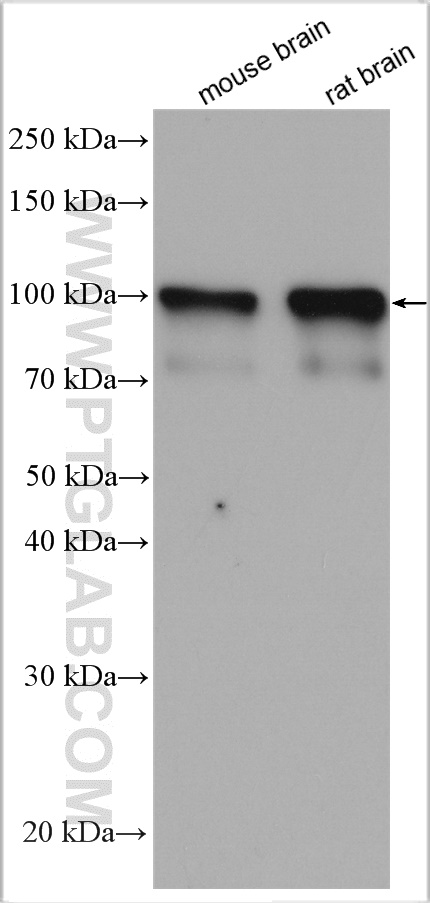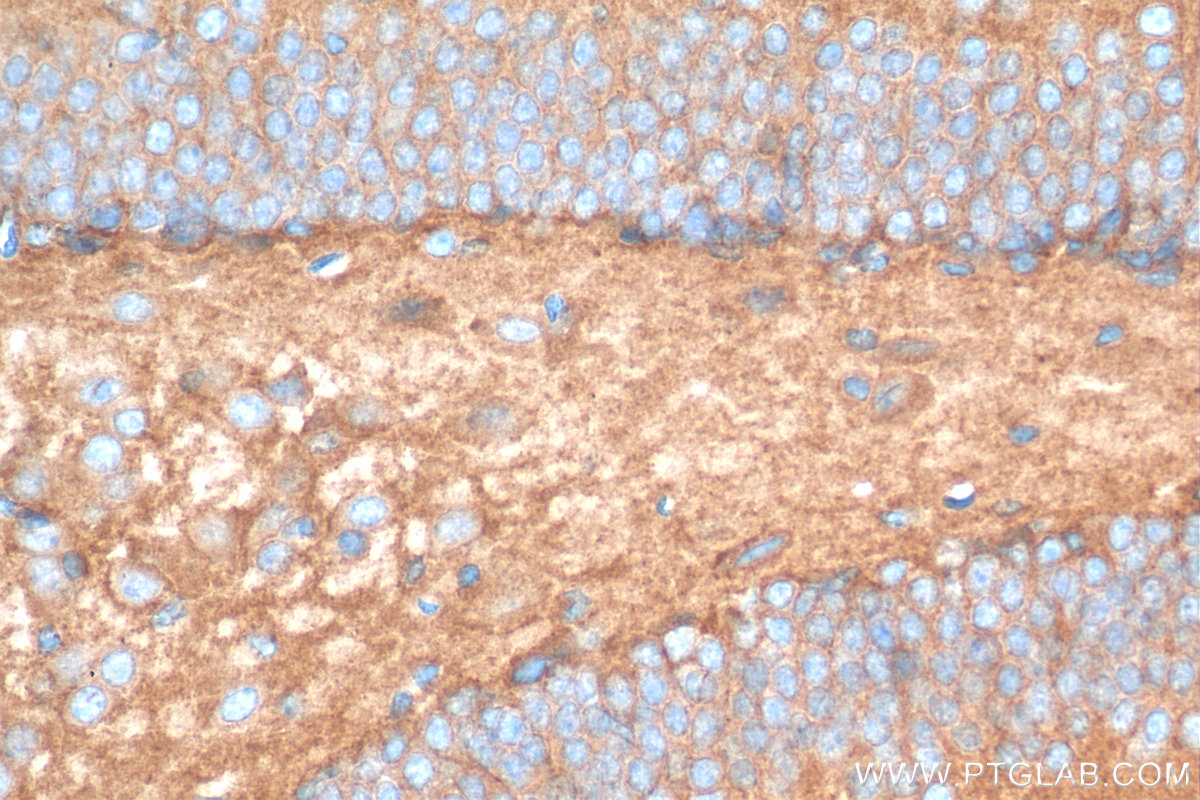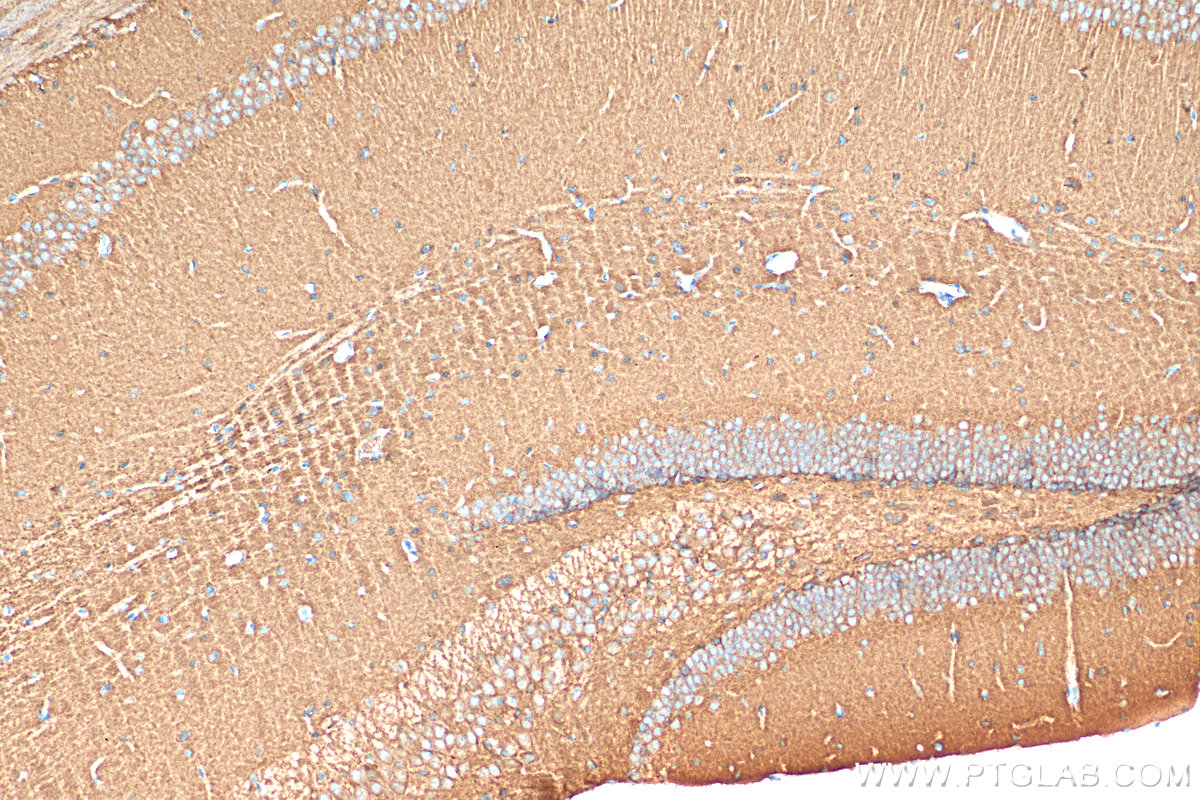NLGN3 Polyclonal antibody
NLGN3 Polyclonal Antibody for WB, IHC, ELISA
Host / Isotype
Rabbit / IgG
Reactivity
human, mouse, rat
Applications
WB, IHC, ELISA
Conjugate
Unconjugated
验证数据展示
经过测试的应用
| Positive WB detected in | mouse brain tissue |
| Positive IHC detected in | mouse brain tissue Note: suggested antigen retrieval with TE buffer pH 9.0; (*) Alternatively, antigen retrieval may be performed with citrate buffer pH 6.0 |
推荐稀释比
| Application | Dilution |
|---|---|
| Western Blot (WB) | WB : 1:2000-1:10000 |
| Immunohistochemistry (IHC) | IHC : 1:250-1:1000 |
| It is recommended that this reagent should be titrated in each testing system to obtain optimal results. | |
| Sample-dependent, Check data in validation data gallery. | |
产品信息
29319-1-AP targets NLGN3 in WB, IHC, ELISA applications and shows reactivity with human, mouse, rat samples.
| Tested Applications | WB, IHC, ELISA Application Description |
| Tested Reactivity | human, mouse, rat |
| Immunogen | NLGN3 fusion protein Ag30536 种属同源性预测 |
| Host / Isotype | Rabbit / IgG |
| Class | Polyclonal |
| Type | Antibody |
| Full Name | neuroligin 3 |
| Synonyms | NL3, Neuroligin-3, neuroligin 3, HNL3, AUTSX1 |
| Calculated Molecular Weight | 94 kDa |
| Observed Molecular Weight | 90-110 kDa |
| GenBank Accession Number | BC051715 |
| Gene Symbol | NLGN3 |
| Gene ID (NCBI) | 54413 |
| RRID | AB_3086116 |
| Conjugate | Unconjugated |
| Form | Liquid |
| Purification Method | Antigen affinity purification |
| UNIPROT ID | Q9NZ94 |
| Storage Buffer | PBS with 0.02% sodium azide and 50% glycerol pH 7.3. |
| Storage Conditions | Store at -20°C. Stable for one year after shipment. Aliquoting is unnecessary for -20oC storage. |
背景介绍
实验方案
| Product Specific Protocols | |
|---|---|
| WB protocol for NLGN3 antibody 29319-1-AP | Download protocol |
| IHC protocol for NLGN3 antibody 29319-1-AP | Download protocol |
| Standard Protocols | |
|---|---|
| Click here to view our Standard Protocols |


